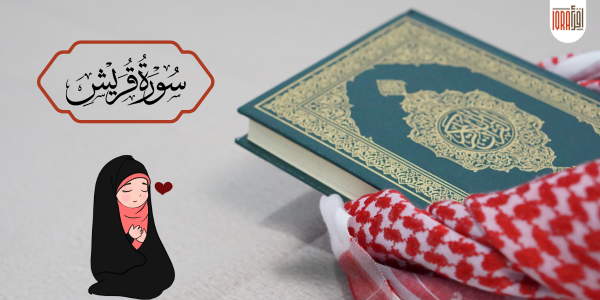Among the profound concepts discussed in the Quran, one that stands out is Taqwa. While often loosely translated as ‘fear of Allah,’ Taqwa encapsulates a far deeper meaning, emphasizing consciousness and mindfulness of the Divine. This piece aims to delve into this concept, unpack its significance in the Quran, and explore its practical implications for the faithful. So, what is Taqwa?
Defining Taqwa
The term ‘Taqwa’ is derived from the Arabic root ‘waqa,’ which means to shield or protect oneself. It’s a state of the heart cultivated by harboring fear and awe of Allah, leading to adherence to His guidelines and abstention from His prohibitions. “0 you who have believed, fear Allah as He should be feared and do not die except as Muslims [in submission to Him].” (Quran 3:102). Thus, Taqwa isn’t merely fear – it’s reverence, conscious love, and total submission to Allah at the backdrop of fearing His displeasure. It’s an all-encompassing concept that drives a believer’s thoughts, intentions, and actions.
The Importance of Taqwa in the Quran
The Quran mentions Taqwa multiple times, underlining its significance in a believer’s life. It’s described as the best garment “…But the clothing of righteousness (Taqwa) – that is best…” (Quran 7:26), the criterion of honor in Allah’s sight “…Indeed, the most noble of you in the sight of Allah is the most righteous (most full of Taqwa) of you…” (Quran 49:13) and a means to attain wisdom “…So fear Allah; perhaps you will be reminded.” (Quran 16:50). This frequent mention of Taqwa in the Quran underscores its critical role in shaping a believer’s spiritual journey.IQRA Network provides resources for better understanding Quranic themes such as Taqwa, fostering a more profound connection with Allah.
The concept of Taqwa serves as a moral compass guiding believers in their daily lives. It’s the conscious effort to stay in Allah’s grace by adhering devoutly to His teachings and abstaining from sinful behavior. It’s understanding that Allah’s guidelines are for our benefit and His prohibitions shield us from harm. With Taqwa, believers can navigate life’s ups and downs with resilience, contentment, and a steadfast heart. Alhamdulillah.
Nurturing Taqwa in 0urselves
Nurturing Taqwa in our hearts isn’t an overnight process but a continuous journey of spiritual growth. We begin this journey by gaining knowledge of Allah and His commands. The more we understand Allah, His attributes, and His guidance, the more we grow in reverence and love for Him. “So know, [0 Muhammad], that there is no deity except Allah and ask forgiveness for your sin and for the believing men and believing women…” (Quran 47:19).
Next, we engage in constant remembrance (dhikr) of Allah, striving to maintain mindfulness of His presence in our daily lives. Consciousness of His omnipresence encourages us to act righteously. Another crucial element is consistent prayer (Salat), which serves as a direct link between us and Allah, helping to strengthen our relationship with the divine. This is echoed in a Hadith where the Prophet Muhammad (Peace Be Upon Him) said, “He who remembers his Lord and he who does not are like the living and the dead.” (Bukhari).
The Societal Implications of Taqwa
Although Taqwa is deeply personal, it has profound societal implications. A community guided by Taqwa values truth, justice, and compassion, as these values are at the heart of Allah’s commands. “0 you who have believed, be persistently standing firm for Allah, witnesses in justice, and do not let the hatred of a people prevent you from being just. Be just; that is nearer to righteousness (Taqwa)…” (Quran 5:8).
When individuals in a society cultivate Taqwa, they create an environment of mutual respect, tolerance, and peace. They hold themselves accountable, striving not only for their well-being but also for the welfare of others. Living with Taqwa allows us to contribute to building a more empathetic, fair, and loving society. Our learning platform at IQRA Network offers resources to deepen your understanding and practice of Taqwa. Masha’Allah.
Practical Ways to Enhance Taqwa
Actively seeking ways to enhance Taqwa can lead us to live more fulfilling lives spiritually. One effective method is through the consistent reading and reflection of the Quran. Gaining a better understanding of divine words can definitely heighten our Taqwa. “…Allah has sent down the best statement: a consistent Book wherein is reiteration. The skins shiver therefrom of those who fear their Lord; then their skins and their hearts relax at the remembrance of Allah. That is the guidance of Allah by which He guides whom He wills. And one whom Allah leaves astray – for him there is no guide.” (Quran 39:23). Islamic resources available through IQRA Network can greatly assist in this learning journey.
Another practical step is incorporating more acts of charity into our lives. Generosity and kindness imbibe the spirit of Taqwa as they reflect our obedience and submission to Allah’s command. Prophet Muhammad (Peace Be Upon Him) once said, “Charity extinguishes the sins just as water extinguishes the fire” (Tirmidhi). Insha’Allah, let us strive to increase our acts of charity in daily life.
Taqwa In Interpersonal Relationships
When we embody Taqwa, it profoundly influences our interpersonal relationships. Guided by fear and consciousness of Allah, we strive to be just, compassionate, and truthful in our dealings with others. As Allah advises us in the Quran, “…and speak to people good [words]…” (Quran 2:83). This translates into healthier, more respectful, and loving relationships, helping to foster a stronger, more united community.
The Prophet’s (Peace Be Upon Him) life provides a vivid example of how Taqwa shapes interpersonal relationships. He treated everyone with kindness and respect, regardless of their social status. His life is a testament to the transformational power of Taqwa in our relationships. IQRA Network provides a wealth of resources to help us understand and emulate his exemplary character. SubhanAllah.
Taqwa and Patience
Taqwa and patience go hand in hand. Life can sometimes throw us in challenging situations. It’s during these times that Taqwa empowers us to be patient, persevere, and trust in Allah’s plan. As Allah mentions in the Quran, “O you who have believed, seek help through patience and prayer. Indeed, Allah is with the patient.” (Quran 2:153). We shouldn’t view trials as punishments, but as opportunities to grow spiritually and emotionally. With Taqwa, we can remain patient and hopeful, recognizing that every hardship is a test of faith.
Regular prayer and supplication can foster patience. Prophet Muhammad (Peace Be Upon Him) often reminded us of the importance of patience, citing it as a virtue of the highest order: “Patience is a key to success” (Bukhari). Through patience, we can navigate the uncertainties of life with grace and dignity. With resources from IQRA Network, we can learn more about the invaluable virtues of patience and Taqwa. Alhamdulillah.
The Goal of Taqwa
Ultimately, the journey of Taqwa aims to bring us closer to Allah. As we navigate life’s challenges, Taqwa serves as a moral compass guiding our thoughts, actions, and intentions. It is a protective shield that keeps us grounded in righteousness and humility. “…So fear them not, but fear Me, if indeed you are believers.” (Quran 3:175). We should strive to live our lives in such a way that our every action and intention align with Allah’s divine guidance.
This journey towards gaining Taqwa is lifelong, filled with constant learning and unlearning, growing, and self-improvement. And no one said it would be easy. However, the reward promised by Allah for those with Taqwa makes it a truly worthwhile pursuit. The Prophet Muhammad (Peace Be Upon Him) said, “The most superior among you (Muslims) are those who learn the Quran and teach it” (Bukhari). Through platforms like IQRA Network, we can continuously seek knowledge, fostering our Taqwa for His satisfaction. Insha’Allah.
The Impact of Taqwa on Personal Growth
Taqwa plays an instrumental role in our personal growth. By constantly striving to uphold Allah’s commandments and stay away from sinful behavior, we grow not just spiritually, but also morally and emotionally. The Quran beautifully encapsulates this when Allah says, “He who fears Allah and endures, then indeed, Allah does not allow to be lost the reward of those who do good.” (Quran 12:90). Thus, nurturing Taqwa is a form of self-improvement, as it encourages us to constantly strive to be better people.
Consistency is key in this process of personal growth. Whether it’s being diligent with our prayers, consistently reading and reflecting on the Quran, or constantly trying to better our character, every step we take in the pursuit of Taqwa contributes to our personal growth. As Prophet Muhammad (Peace Be Upon Him) so eloquently said, “The deeds most loved by Allah are those done regularly, even if they are small” (Bukhari). To guide us on this journey, we’re lucky to have resources from the IQRA Network. SubhanAllah.
Taqwa: The Path Towards Ultimate Success
In Islam, ultimate success lies in attaining Allah’s pleasure and entering Paradise. Taqwa is the path that leads us to this success. As Allah tells us in the Quran, “And hasten to forgiveness from your Lord and a garden as wide as the heavens and earth, prepared for the righteous.” (Quran 3:133). Those who cultivate Taqwa strive to please Allah, adhere to His guidance, uphold justice, and spread kindness, ultimately leading them towards eternal success.
The goal of all our efforts should always be to please Allah and ensure a place in Paradise. As we continue to nurture Taqwa in our hearts and reflect it in our actions, we move closer and closer to this ultimate success. Prophet Muhammad (Peace Be Upon Him) beautifully summed up this notion when he said, “Indeed, Paradise is surrounded by hardships, and Hellfire is surrounded by desires” (Muslim). Through platforms like IQRA Network, we can continue to strive for success in this life and the next. Masha’Allah.
Taqwa and the Concept of Accountability
A vital aspect of Taqwa is the realization of our eventual accountability to Allah. This powerful awareness permeates every aspect of our lives, shaping our actions and decisions. Allah reminds us in the Quran, “So whoever does an atom’s weight of good will see it, And whoever does an atom’s weight of evil will see it.” (Quran 99:7-8). Thus, Taqwa instills a strong sense of personal responsibility, encouraging us to live righteously and seek Allah’s pleasure.
Knowing that we’re accountable for our deeds can be sobering but it also motivates us to strive for excellence in all areas of life. The Prophet Muhammad (Peace Be Upon Him) said, “Each of you is a guardian and is responsible for his charges” (Bukhari). Thus, Taqwa fuels a commitment to leave a positive impact on our surroundings. IQRA Network helps us understand and embrace this mindset further. Insha’Allah.
Conclusion: The Journey of Taqwa
Taqwa, the deep-rooted consciousness and fear of Allah, is a jewel that a believer strives to adorn their heart with. It is not merely a concept but an actionable principle that has far-reaching implications in our daily lives. From strengthening our relationship with Allah, enhancing personal growth, fostering healthier relationships, and molding society, the impact of Taqwa is indeed profound.
Embracing Taqwa is embarking on a journey of learning, understanding, and personal betterment. It’s a lifelong commitment requiring sincerity, patience, and perseverance. However, the fruits of this journey make every effort worthwhile. The Prophet Muhammad (Peace Be Upon Him) reminded us that “The most wise person is the one who remembers death the most and is best prepared for what comes after it” (Tirmidhi).
By cultivating Taqwa, we are essentially preparing for the ultimate success – to attain Allah’s pleasure and His Paradise. Through platforms like IQRA Network, we can better understand and nurture Taqwa in our hearts and positively impact the world around us. Alhamdulillah.
You can also read:





0 Comments
Oops comments are disabled